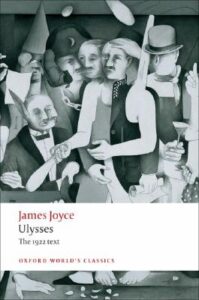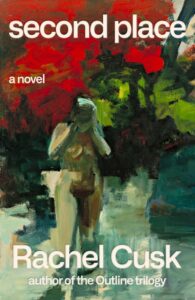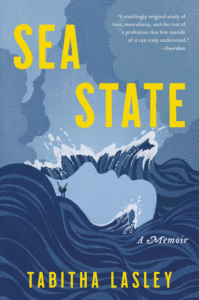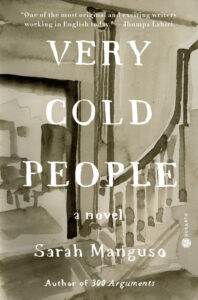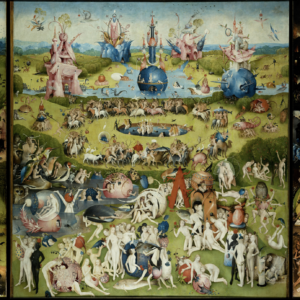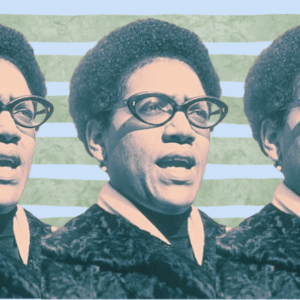
5 Book Reviews You Need to Read This Week
Merve Emre on Love in Ulysses, Frank Guan on Chuck Klosterman’s Ode to the 90s, and More
Our treasure chest of terrific reviews this week includes Merve Emre on James Joyce’s Ulysses, Claire Jarvis on Rachel Cusk’s Second Place, Frank Guan on Chuck Klosterman’s The Nineties, Jess Bergman on Tabitha Lasley’s Sea State, and Katy Waldman on Sarah Manguso’s Very Cold People.
Brought to you by Book Marks, Lit Hub’s “Rotten Tomatoes for books.”
*
“Ulysses is all about wandering, of course, and about the loneliness that attends it … Bloom is adrift from his wife, adrift from his past self, and alone with his memory—just as readers, devouring the novel with pleasure, look up to realize that they are alone and adrift on its thrashing sea of references…Seduced and abandoned, the reader makes one connection after another, but they affirm nothing more than Joyce’s appetite for knowledge, a cultural literacy presented as godlike in its extent. Ulysses, Bersani concludes, is ‘modernism’s most impressive tribute to the West’s long and varied tribute to the authority of the Father.’ The Father’s most dutiful offspring are known as Joyceans, and the churn of the ‘Joyce industry’ has spawned a vast apparatus of commentary that even they have deemed oppressive … But I like the idea of a hole in my knowledge of literature’s history. And I like the idea that someone, in some other fleshwarmed bed, is making connections I cannot. This is the pleasure of surrender and passivity…This surrender is love. If desire is the pain of ignorance, then love, as the scholar Sam See proclaimed in a stirring response to Bersani, ‘is the pleasure of ignorance: the pleasure of renouncing our desire to fill the hole of knowledge, to make knowledge whole, to master those to whom we bear relation.’ To relinquish mastery is to sing, as Molly does, ‘love’s old sweet song.’ Knowledge and ignorance, desire and love, control and submission—these are the straits that Ulysses asks its readers to navigate … It is probably a betrayal of the feminist literary tradition to pronounce the final episode of Ulysses, ‘Penelope,’ the best—the funniest, most touching, arousing, and truthful—representation of a woman anyone has written in English. But it is, and the eight long, unpunctuated, and outrageous sentences of Molly Bloom’s silent monologue make much of the feminist canon look like a sewing circle for virgins and prudes….How many novels end with a woman coming? And where is she coming? In bed next to her husband, who does not know what she is doing, or in her memory, where he does not know what she is thinking? In these unknowabilities, Ulysses ends on a cry of loving pleasure.”
–Merve Emre on James Joyce’s Ulysses (The New Yorker)
“Rachel Cusk’s novels are merciless. She believes nerviness and irritation are necessary habits of mind to explore and put down on paper. Difficulty is her bread and butter. This is not to say her work is mean or mean-spirited. But her exacting mien makes me, as a reader, feel awkward: too large, too wrinkled, too eager to please. There is a spare intensity to her prose that makes it seem written with a thin person’s pen: a control that implicitly criticizes sloppiness of body or mind. Which is why her new novel, Second Place, is so perplexing … Cusk borrows some of Emily Brontë’s unrelenting intensity in her characterization of M and L, though their connection is not the mind-altering romance of Cathy and Heathcliff: instead, M and L are acquaintances, not very close ones, who make unreasonable emotional demands on each other. The problem of quasi-violent emotional intensity in such a deflated, and deflating, social interaction is surprising, and not just for what it says about the marginal connections we have with mere acquaintances … The murky setting of the novel is an important aspect of M’s very un-Cuskian tone; the style of her narration feels uncontrolled and emotionally needy, plangent and demanding, mud-like and sticky…The distance M feels from others, especially from other women, feels Cuskian, but her higgledy-piggledy nervousness, her awkwardness, feels new, the exploration of a less disciplined persona … Cusk’s novel orbits around the ways that many women experience aging, sex, and motherhood simultaneously. It is in M as a mother that we see Cuskian characterization most clearly: this is a portrait of a woman aging out of motherhood as the world constitutes it, as a job of embodied work, physical and intimate, into something more etiolated and brittle.”
–Claire Jarvis on Rachel Cusk’s Second Place (The New York Review of Books)
“The effect is like watching TV with an opinionated but impatient connoisseur of everything that’s on—hopscotching, riffing, channel-flipping. This may be part of the point. The prime mover of the nineties, to Klosterman’s mind, was a machine … If Klosterman’s aim is to reproduce, in today’s reader, the feel of a bygone era in which people experienced feeling at a great remove, then he has succeeded. By his own logic, a demographic marked by an antipathy to straight emotion and an addiction to recursive thinking…should produce, through him, a knowingly reductive, picture-in-picture self-portrait in which the writer’s impervious affect re-states the unity of medium (TV) and message (its supremacy) … the affect that pervades The Nineties is corpse-chilled, rigorous in its lack of sensation. Still, it is nostalgia nonetheless, a past prepared for the use of a select community … If nothing else, one must concur that there are many ways to be annoying. More rerun than revisionism, Klosterman’s history takes its stand against the millennial urge to reassess the nineties (or the generation claiming ownership of them) in the harsh light of later events … If The Nineties arouses nostalgia, it’s for the enthusiasm, humor, and humility of Klosterman’s early books. It’s a shame that an intelligence as formidable as his is now devoted to performing the same stereotypes from which he broke away in order to achieve his original success as a memoirist and essayist … By stiffly performing a set list of ambient anomie, though, Klosterman tunes out the vibrancy and the variable tones of an era.”
–Frank Guan on Chuck Klosterman’s The Nineties (The New Yorker)
“Lasley’s project…quickly abandons any pretense of being an objective study of a masculine industry in decline. What Sea State becomes instead is a blistering account of self-destruction—that of the men who work offshore, yes, but mostly Lasley’s own … how precisely their tryst becomes a full-blown affair is left off the page. This omission is of a piece with Lasley’s refreshing disdain for the reader’s desire to know exactly what is going on at all times, who is speaking which lines, what is truth and what’s a fabrication. As in real life, key details are only revealed in their full context long after they’ve been introduced … Lasley’s interviewees appear at the start of each chapter. A few read almost like punchlines … Many others, though, are poignant, or at least revealing of the double life that so many offshore workers feel the job forces them to live … Lasley is perceptive, too, about the uneasy class position of the offshore workers, many of whom come from working-class backgrounds but whose occupation allows them a level of material comfort that eludes many bourgeois, city-dwelling professionals today … Sea State’s slide into the personal doesn’t wind up feeling like a loss. Lasley’s writing is energetic and occasionally impressionistic. She is prone to self-indulgent disquisitions on the beauty of dance music like UK garage and seems nimbler with details than structures. All of this makes for a fresh and unpredictable prose style but would be an obvious liability in any bird’s-eye view of the oil industry. And perhaps most crucially, Lasley makes for as compelling a character as any of the men she speaks to.”
–Jess Bergman on Tabitha Lasley’s Sea State (The Nation)
“Here, as in many fairy tales, a feeling of magic corresponds to the feeling of the unknown. With its adult narrator trying to recover the intuitions of her younger self, Very Cold People reminded me of My Brilliant Friend, the first novel in Elena Ferrante’s Neapolitan quartet. Like Ferrante’s Lila and Lenu, Ruthie is sharply attuned to a force she doesn’t understand. Something is pushing through the cracks in the walls, the felted wool of her coat, but she lacks the context or language to name it. For the Italian girls, the invisible power was political violence: Lila and Lenu interpret Don Achille, the neighborhood’s fascist thug, as an ogre who eats children. For Ruthie, the unseen current is some combination of class, whiteness, and the widespread sexual abuse of children … Manguso’s method is to break narrative into wisps of inner life and bits of observation. She marshalls the means of poetry (compression, obliqueness) for essayistic ends, pursuing not the finished thought but the feeling of thinking. Her work is especially haunted by the themes of omission and replacement … For Ruthie’s community, replacing a freighted something with an innocuous nothing is more than a psychic process or an aesthetic sensibility. It’s a way of life. And Manguso seems particularly caught on how the threats that are ushered out of sight in Waitsfield refuse to stay hidden. They slosh and seep; they infect the surfaces that conceal them … You could argue that Very Cold People is a version of what Parul Sehgal, writing in this magazine, called the trauma plot. Ruthie’s halting narration and lack of affect suggest a girl caught within a net of pain; the task of the book is to unmask each node, or victim, in the net, moving suspensefully inward. But Very Cold People adds nuance by investigating how substitution and silence can be misguided acts of love, not just symptoms of damage.”
–Katy Waldman on Sarah Manguso’s Very Cold People (The New Yorker)
Book Marks
Visit Book Marks, Lit Hub's home for book reviews, at https://bookmarks.reviews/ or on social media at @bookmarksreads.










